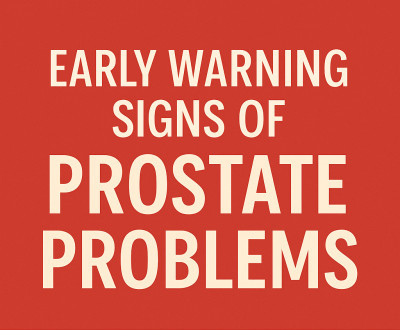




As men age, changes in urinary habits often creep in gradually — sometimes too subtly to cause immediate concern.
However, understanding the early signs of prostate problems is essential for early detection and effective management.
One of the most common — and often overlooked — warning signs is frequent urination at night, medically known as nocturia.
So how do prostate issues develop?
What early symptoms to look out for, and what might be causing those nighttime bathroom trips.
The prostate is a walnut-sized gland located just below the bladder, and it plays a critical role in male reproductive health. It surrounds part of the urethra — the tube that carries urine out of the body — so when the prostate becomes enlarged or inflamed, urinary function can be directly affected.
Prostate issues are incredibly common, particularly in men over 50. The most common conditions include:
Many men dismiss minor urinary changes as “just part of getting older,” but they may be early signs of a developing prostate issue. Common symptoms include:
Nocturia has a variety of causes, but for men over 40, the prostate is often involved. Here are some key contributors:
Occasional nighttime urination isn't usually a red flag. But if you're experiencing persistent nocturia (more than twice per night), or any combination of the early symptoms above, it’s worth seeking medical advice.
Early screening, especially after age 50, can help detect prostate issues before they become serious. Your doctor may suggest a PSA (prostate-specific antigen) blood test, a digital rectal exam (DRE), or an ultrasound to assess prostate size and urinary flow.
If you’re looking to support prostate health naturally, these lifestyle strategies may help:
The early signs of prostate problems — including frequent urination at night — can be subtle but should not be ignored. While aging naturally changes the urinary system, persistent symptoms may signal benign or more serious prostate conditions. Recognizing these signs early and taking action — whether through medical advice, lifestyle changes, or natural support — can help preserve long-term health and comfort.
 Disclosure: When you buy something we recommend, we may get an affiliate commission, but it never affects your price or what we recommend.
Disclosure: When you buy something we recommend, we may get an affiliate commission, but it never affects your price or what we recommend.